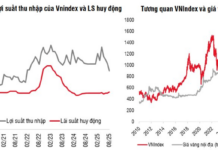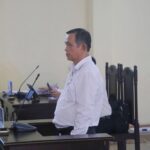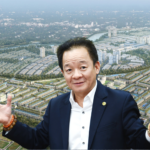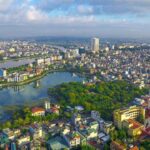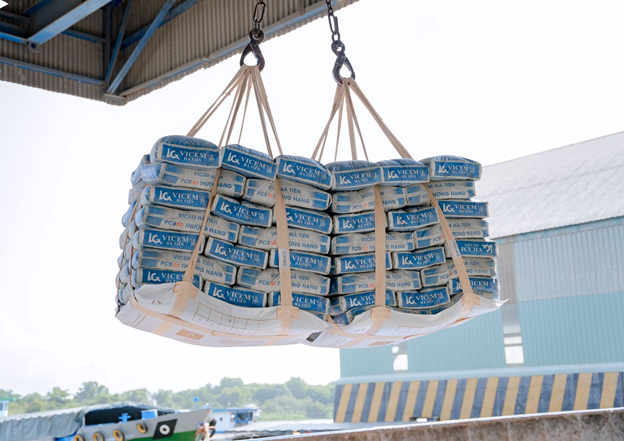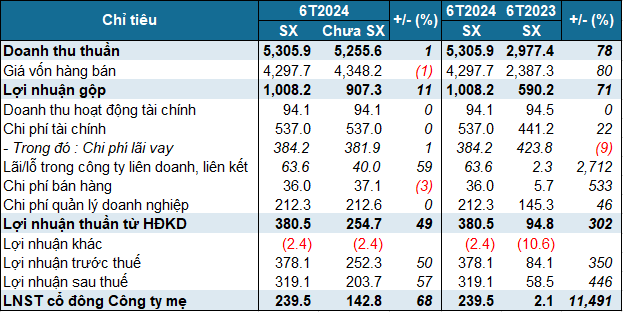On September 17, the Ho Chi Minh City People’s Court held a first-instance trial for the case of “Smuggling” and “Tax Evasion” involving Mr. Pham Van Tam (born in 1980; former Chairman of Asanzo Company) and his brother Pham Xuan Tinh (born in 1985; former Director of Asanzo Company).
Defense Proposal from the Lawyer
In court, defendant Pham Van Tam unexpectedly pleaded guilty. Previously, he had consistently denied the charge of “Smuggling” brought by the Ho Chi Minh City People’s Procuracy.
Defending Tam, the lawyer argued that for the charge of “Tax Evasion,” the defendant had paid over 15.8 billion VND in reparations. Meanwhile, the appraisal conclusion dated June 10, 2020, by the former Dong Nai Tax Department and Binh Duong Tax Department determined that Asanzo Company had evaded taxes totaling over 15.7 billion VND, including 4.1 billion VND in value-added tax and 11.5 billion VND in special consumption tax.
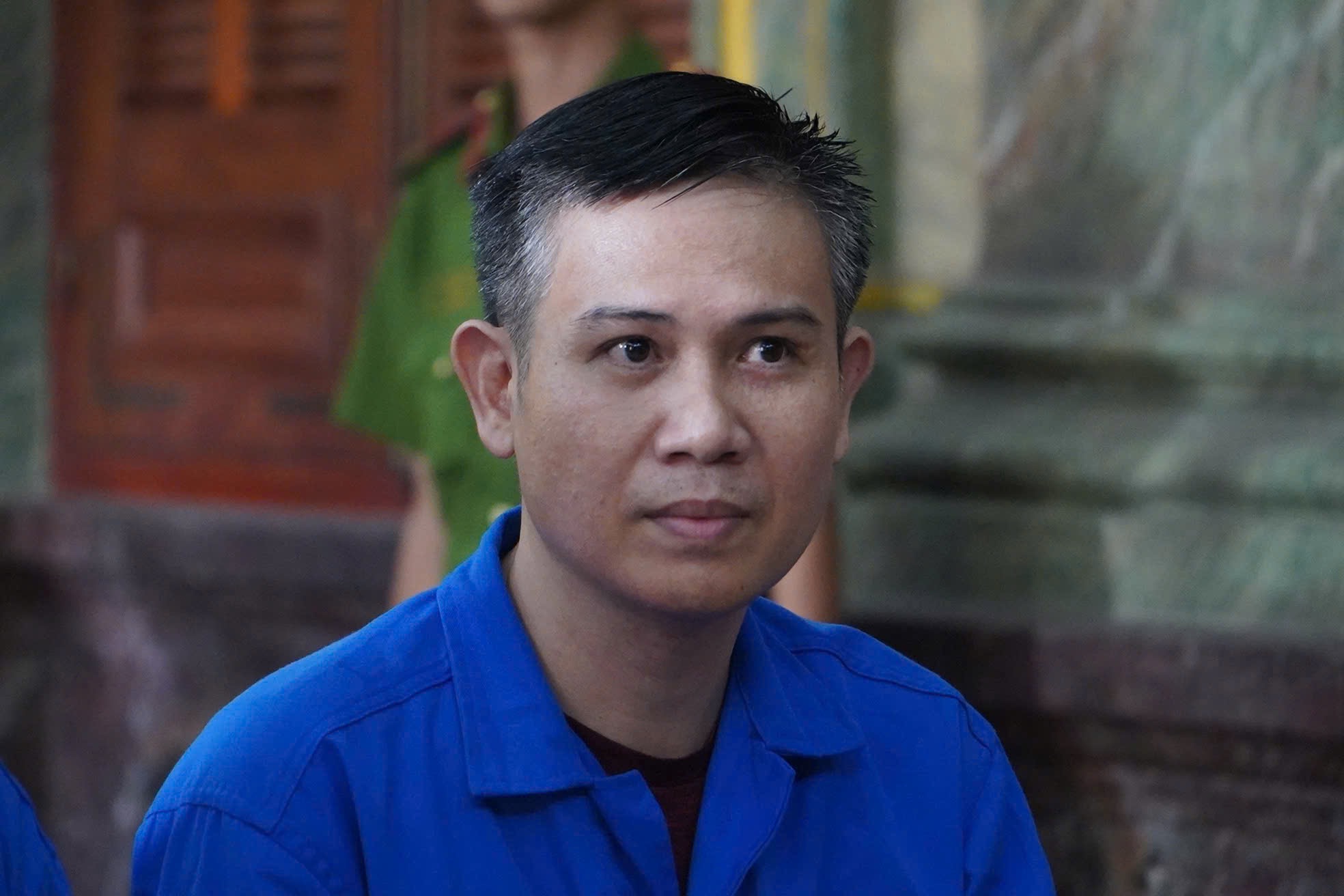
Defendant Pham Van Tam in court
Earlier, on March 24, 2020, the Ho Chi Minh City Tax Department confirmed that Asanzo had fully paid the reparations of over 15.8 billion VND. However, on June 11, 2024, the Investigative Police Agency still issued a decision to prosecute the case. The lawyer deemed this penalty “very severe.”
According to the lawyer, defendant Tam did not intentionally evade taxes. Regarding the charge of “Smuggling,” he urged the court to apply the principle of presumption of innocence, noting that the defendant had fully remedied the consequences. Thus, the lawyer proposed a fine of 50 million to under 300 million VND for “Smuggling” and a sentence equivalent to the time already served in detention (1 year, 2 months, and 25 days) for “Tax Evasion.”
The lawyer also provided additional mitigating circumstances, stating that many Asanzo employees had submitted petitions for leniency, as the company was operating well and they hoped the defendant would return soon to manage and rectify his mistakes.
In court, both Mr. Tam and his brother admitted to the contents of the indictment. Previously, during the investigation phase, Mr. Tam had claimed innocence regarding the “Smuggling” charge.
“Not Enough to Be Recognized as Active Cooperation”
Expressing their opinion on the case, the representative of the Ho Chi Minh City People’s Procuracy affirmed that the indictment against the defendants was accurate, stating that as company managers, they had intentionally committed crimes, posing a danger to society, and thus deserved severe punishment.
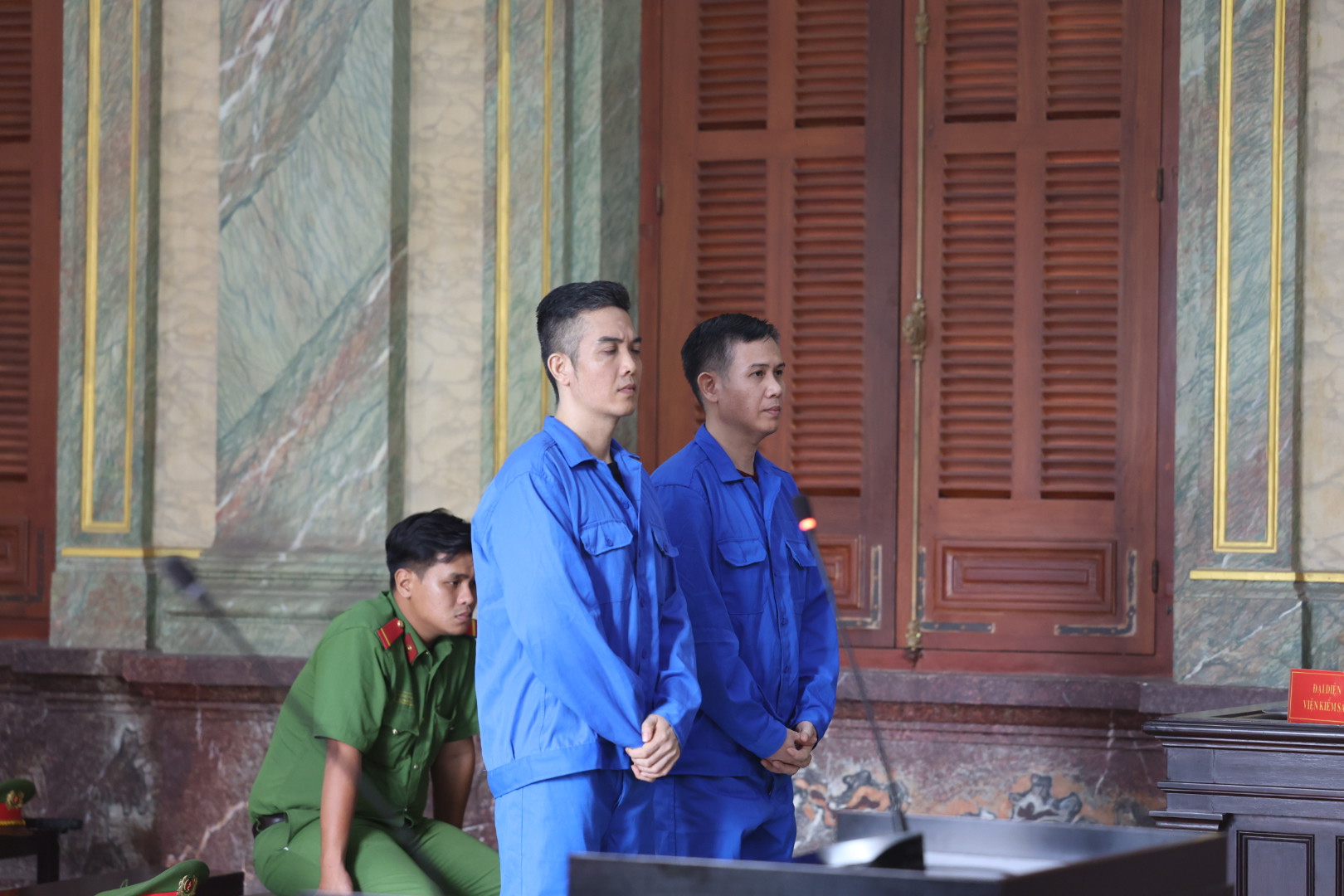
The two defendants in court
However, the Procuracy acknowledged that defendant Tam had changed his stance on the smuggling charge, and both brothers had fully remedied the consequences, presenting new mitigating circumstances in court.
Therefore, the prosecution proposed a sentence of 5–6 years for “Smuggling” and 5–6 years for “Tax Evasion” for Pham Van Tam, totaling 10–12 years. Pham Xuan Tinh was proposed to receive 4–5 years for “Tax Evasion.”
The Procuracy representative noted that a positive shift in the case was Pham Van Tam’s admission of guilt. However, this sincerity was not sufficient to qualify as “active cooperation.” During the investigation, Tam’s smuggling activities directly hindered the resolution of the case involving Truong Ngoc Liem from the outset. Thus, the admission of guilt was considered a regular mitigating factor, lacking grounds for the “active cooperation” reduction.
The prosecutor emphasized that the case was deemed relatively complex due to the defendants’ attitude.
According to the indictment, through the legal entity of Sa Huynh Company, Pham Van Tam imported goods from abroad into Vietnam but declared them inaccurately to avoid quality inspections as required by law.
Although Tam denied instructing Truong Ngoc Liem to become the Director of Sa Huynh Company (after replacing the former director, Huynh Thi Sa Quoc), contacting customs authorities to clear the violating shipment, or asking Liem to evade the police and providing him with money, the investigation results—including electronic data recovery, bank account verification, statements from related individuals, and other evidence—confirmed that Tam organized and directed Liem to commit smuggling.
Specifically, on September 5, 2018, at Port ICD Phuoc Long 3 (Ho Chi Minh City), a smuggled shipment directed by Tam was discovered, valued at 414.7 million VND.
Additionally, through Asanzo Company, under the direction of Chairman Pham Van Tam, Pham Xuan Tinh (Director and legal representative) signed a framework agreement with Tran Thoaan Company to purchase components for assembling air conditioners (up to 90,000 BTU, labeled with Asanzo branding and packaging).
These products were then sold to Asanzo Refrigeration Company without issuing sales invoices or declaring taxes. Asanzo also used illegal invoices (with inaccurate content—listed as air conditioner components) for input accounting and tax declarations under commercial activities.
Tax appraisal results determined that from 2017 to 2019, these actions resulted in tax evasion exceeding 15.7 billion VND.
The Asanzo Chairman: Evading Investigation?
In the indictment filed by the prosecution, Mr. Pham Van Tam, Chairman of Asanzo Company, was not only charged with tax evasion of over VND 15.7 billion but also with smuggling goods worth VND 414 million. Regarding the smuggling charge, the case file revealed statements alleging that Mr. Tam instructed his subordinates to evade cooperation with the police.
The Asanzo Scandal: Prosecutors Expose Misconduct by the Company’s Owner
The Ho Chi Minh City People’s Procuracy has issued an indictment charging the owner of Asanzo Company, Pham Van Tam, and his brother with smuggling and tax evasion.
Former Employee Alleges Ex-Chairman of Asanzo Provided Monthly Allowance of 30 Million VND to Evade Police Summons
“Liêm, a key witness in the Asanzo case, alleged that he received a monthly sum of 30 million VND from the former Asanzo Chairman, Pham Van Tam, to avoid police interrogation regarding the illegal shipment. However, the accused has refuted these claims, creating a complex web of allegations and denials that demand further investigation.”



















